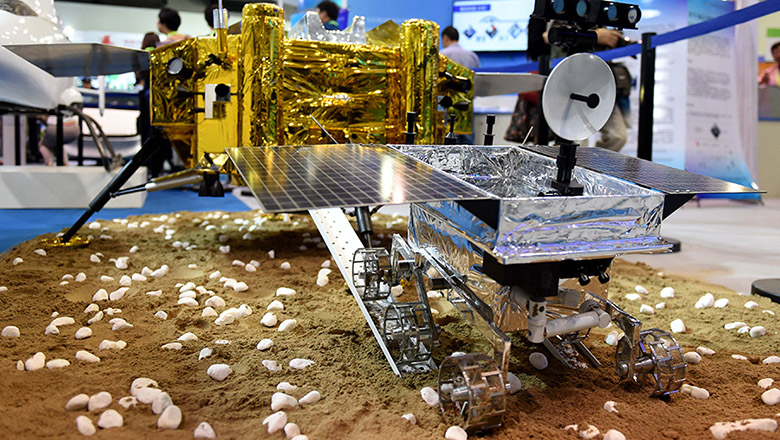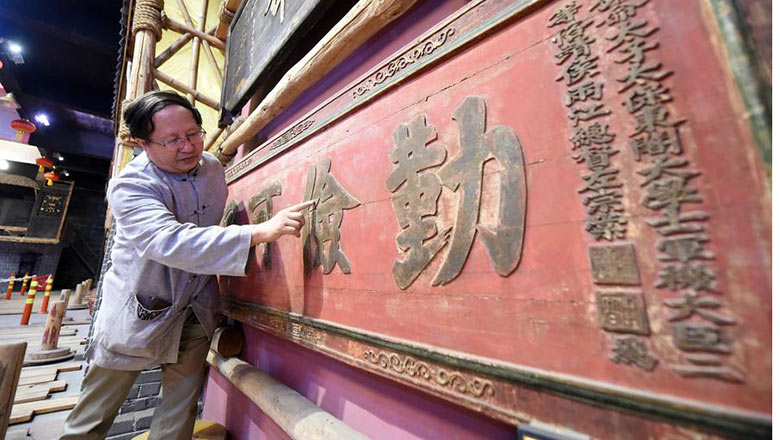Sowing the seeds of Africa's success
Updated: 2016-05-21 14:38
By Amina Mohammed(chinadaily.com.cn)
|
||||||||
Africa's transformation lies in the continent's rich soil. If we protect the ecosystems that sustain us we can lift Africans out of poverty, achieve food security, build climate resilience, create wealth and end hunger
There is an old Nigerian proverb that says "fine words do not produce food". So I will keep my words as simple and clear as possible.
Africa is facing a harsh reality. One in every two people on the continent lives in extreme poverty. In 15 years, most of the world's poor will reside here in Africa. Sadly, as I write, about 240 million people go to bed hungry every night while malnutrition kills more than 50% of the African children who die before they reach the age of five.
These stark statistics are hard to grapple with. But imagine for a moment the pain of a mother who cannot feed her new-born daughter with the proper food she needs to live beyond the age of five. Imagine the mother who toils all day in the field but still goes to bed with a stomach aching from hunger because she cannot afford enough food to feed her family.
And now picture this: millions of perfectly good, nutritious tomatoes rotting in the hot Nigerian sun. For this is the reality: that, while 13 million Nigerians suffer from hunger and more than one million children suffer from malnutrition, the country wastes 75% of the 1.5 million tonnes of tomatoes it grows every year.
And yet, despite the waste of this nutritious fruit, Nigeria spends $1 billion every year on importing tomato paste.
There is another West African proverb: "it is a fool whose tomatoes are sold to him". But I believe I can improve upon this proverb: for the true fool is the man who grows enough tomatoes to feed himself only to throw them away and buy someone else's tomatoes. Yet this is exactly what happens here in Nigeria.
This is not just a Nigerian problem. It is an African problem. Sub-Saharan Africa spends $35 billion on importing food every year and the region loses a further $48 billion from food that is wasted post-harvest because of poor roads, inadequate storage and poor access to markets.
These are enormous sums of money that, when added to the $68 billion the continent loses every year because of depleted soils and degraded land, could be ploughed back into African economies to drive the transformation that the continent so badly needs.
The money saved could be used to empower more women, end hunger, achieve food security, improve nutrition, combat climate change, create jobs and promote sustainable agriculture -all of which are key goals set out in the 2030 Agenda for Sustainable Development.
What makes the situation even more frustrating is that 65 per cent of the world's arable land and 10 per cent of its inland water resources are found right here in Africa.
But if these numbers are alarming then they should also give us cause for hope for they tell us that the roots of Africa's transformation lie in the continent's rich soil. These are not just fine words: simply raising crop yields by 10 per cent reduces poverty by about seven per cent. Neither the manufacturing nor service sectors can boast to have such a profound impact on poverty.
The challenge will be in harnessing the fertile soil of Africa at a time when climate change will make it increasingly difficult to grow enough food to feed the continent's booming population, which is expected to double in Sub-Saharan Africa by 2050.
Today, we already have the knowledge to do this. Simply raising agricultural productivity is not enough. If we want to achieve food security we must ensure that we look after the vital ecosystems that allow us to produce our food.
This means looking after the bees and insect pollinators that are necessary for the growth of 75 per cent of all our crops. It means looking after our soils and our water sources. It means protecting the rich biodiversity in our forests. It means building climate resilience. And it means sharing the knowledge and the technology that allows us to do all of these things.
- Russia to build first cruise liner in 60 years
- LinkedIn, Airbnb match refugees with jobs, disaster survivors with rooms
- Duterte 'willing to improve ties' with Beijing
- Canadian PM to introduce transgender rights bill
- Hillary Clinton says her husband not to serve in her cabinet
- New York cake show designs fool your eyes

 China Daily, celebrating 35 years
China Daily, celebrating 35 years
 Six things you may not know about Grain Buds
Six things you may not know about Grain Buds
 China Beijing International High-tech Expo
China Beijing International High-tech Expo
 Highlights at Google I/O developers conference
Highlights at Google I/O developers conference
 Nation celebrates International Museum Day
Nation celebrates International Museum Day
 Body brushwork creates vivid animals
Body brushwork creates vivid animals
 Can you still recognize these cities?
Can you still recognize these cities?
 A private museum owner's devotion to cultural protection
A private museum owner's devotion to cultural protection
Most Viewed
Editor's Picks

|

|

|

|

|

|
Today's Top News
Liang avoids jail in shooting death
China's finance minister addresses ratings downgrade
Duke alumni visit Chinese Embassy
Marriott unlikely to top Anbang offer for Starwood: Observers
Chinese biopharma debuts on Nasdaq
What ends Jeb Bush's White House hopes
Investigation for Nicolas's campaign
Will US-ASEAN meeting be good for region?
US Weekly

|

|








